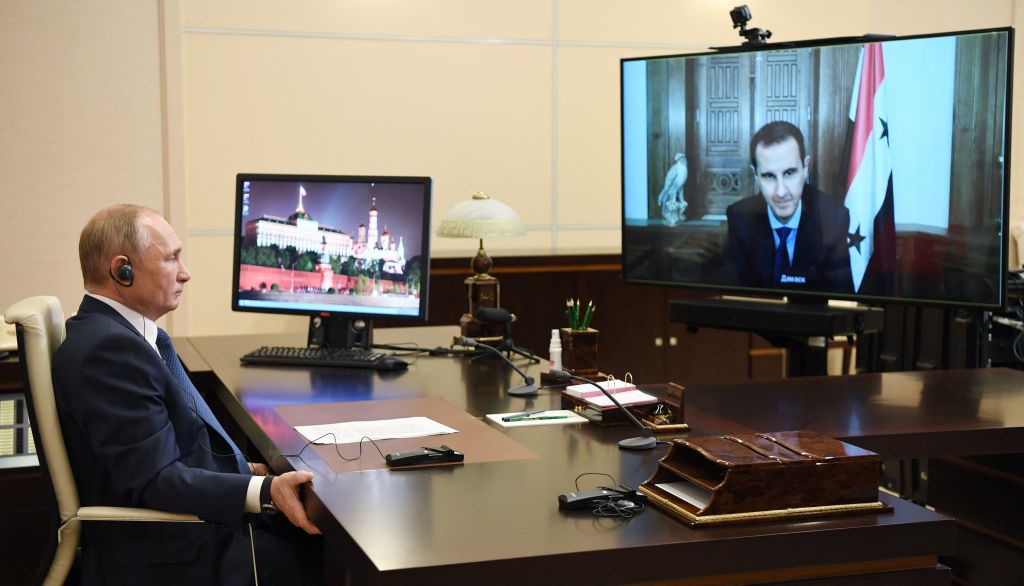Bashar al-Assad has been overthrown, fleeing Damascus after a rapid rebel advance. But the Syrian dictator is far from the only president likely to be despairing today, for Vladimir Putin is another big loser here.
For Putin, the collapse of the Syrian regime and removal of Assad from power poses two critical problems. Firstly, it represents a critical strategic loss. Secondly, it represents a stark decline in Russia’s global prestige.
Russia now seems almost certain to permanently lose both its naval base at Tartus and its air base at Latakia, its only such bases in the Middle East. The loss of Tartus is particularly painful, as the base allowed Russia to conduct sustained surface and submarine operations in the Mediterranean Sea, and served as a conduit for operations into the Indian Ocean. This power, and the global prestige it granted, is now gone. With the Russian Black Sea fleet already locked out of most of those waters under threat of Ukrainian attack, Moscow has lost permanent access to any warm-water ports — a huge dent to Putin’s global ambitions.
The entire world has been shocked by the speed and success of the Syrian rebels, particularly those led by Abu Mohammed al-Jolani and his Hayat Tahrir al-Sham (HTS)-led alliance. But the shock must be especially profound for Putin, given that Russia’s 2015 intervention in the conflict had seemingly swung the military initiative in Assad’s favour, essentially subjugating the Syrian regime to the Kremlin’s whims.
This dramatically increased Russia’s influence with Sunni Arab monarchies such as the UAE, Qatar, and Saudi Arabia, which detest Assad but had accepted that Putin’s success meant he was a forceful actor who had to be dealt with on his terms. They were pursuing increasing normalisation with Assad. Putin’s success also enabled him to leverage Israeli intelligence and political cooperation in return for his tolerating Israeli strikes against Iranian forces in Syria. Israel can now pay Putin back for his political support of Hamas.
Making matters worse, the Syrian rebel narrative has now changed. Putin could once rely upon the extremist influences of the Syrian opposition and the power of Isis and Syria’s al-Qaeda syndicate to present Assad to the world as the unpleasant but acceptable status quo. But Jolani, at face value at least, has cleverly embraced more moderate Islamist politics in recent years, knowing this transformation only has to be real enough to convince the West and Middle Eastern powers.
With Putin’s original 2015 Syrian intervention intersecting Barack Obama’s Iran deal, and the then US President’s perceived disinterest in maintaining a healthy relationship with the Sunni monarchies, Putin came to be seen as the new international leader of rising Middle East influence. Saudi Crown Prince Mohammed bin Salman has had more time for Putin than he has for Joe Biden because of this dynamic, as well as the US focus on the assassination of Jamal Khashoggi. That seems unlikely to continue, with a more Saudi-sympathetic Donald Trump taking office and Putin’s Middle Eastern power base imploding. Perception matters greatly in Middle Eastern politics, and the likes of Saudi Arabia now see Russia as an impotent power.
After all, the war in Ukraine has absorbed Russian military resources, leaving it with very little wiggle room to support Assad. Its forces have been evacuated, and Foreign Minister Sergey Lavrov’s pleas for an end to the rebel advance sound increasingly desperate. Meanwhile, Putin has not publicly commented on what is happening, aware there is no way to spin this crisis.
To make matters worse for the Kremlin, Iran and its Lebanese Hezbollah proxy have been put on the back foot by the success of recent Israeli military operations. Hezbollah is licking its wounds and hoping that the recent Lebanon ceasefire will hold. It simply cannot save Assad. Similarly, Iran does not want to risk deploying military forces which would then be targeted by US or Israeli strikes as they cross the Iraq-Syria border. To do so would only further highlight Iran’s declining deterrent posture following the recent Israeli action, without any feasible prospect of salvaging Assad’s rule.
In short, Putin’s overambition has come home to roost. He thought he had won in Syria and could easily squash Ukraine. Now the consequences of his latter failing have reverberated in the former country. He can’t resupply planes and ships in the Mediterranean and Syria if he doesn’t have bases. Even the Biden administration, so often timid to use military force, is increasing strikes in support of moderate Sunni Arab and Kurdish allies in north-east Syria. In turn, Putin will fear that as Trump prepares to enter office, his means of projecting strength towards Ukrainian peace negotiations will be much diminished.
From Trump and everyone else’s perspective, Putin now appears powerless amid his cascading miscalculations. Russia could use chemical weapons or threaten nuclear strikes, but that will risk the one remaining relationship Putin absolutely cannot afford to lose: his association with China.











Join the discussion
Join like minded readers that support our journalism by becoming a paid subscriber
To join the discussion in the comments, become a paid subscriber.
Join like minded readers that support our journalism, read unlimited articles and enjoy other subscriber-only benefits.
Subscribe